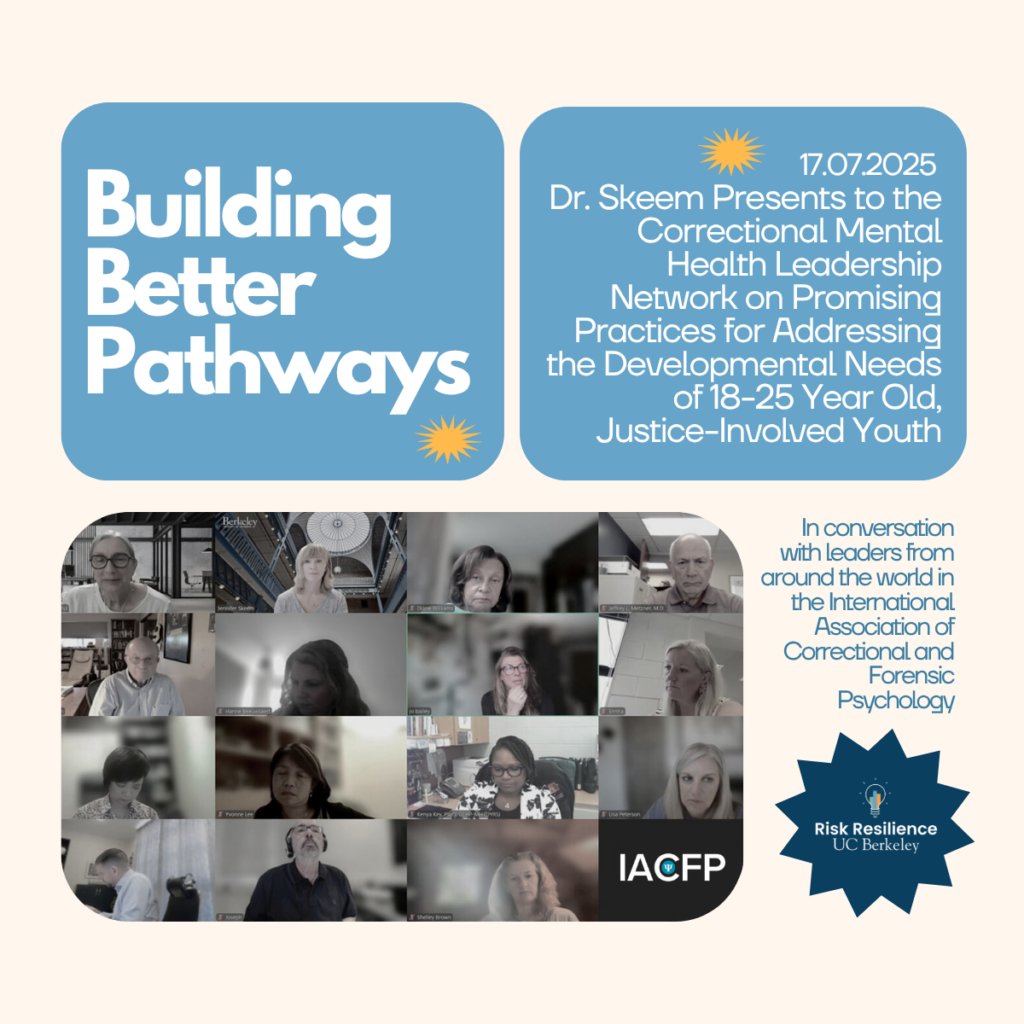Promising Practices for Addressing the Needs of Justice-Involved Youth

At the meeting of the Correctional Mental Health Leadership Network, hosted by the International Association for Correctional and Forensic Psychology (IACFP), Dr. Jennifer Skeem led a presentation on promising practices for addressing the developmental needs of justice-involved youth (ages 18-25). Drawing representatives from the U.S., Canada, Ireland, Hong Kong, Namibia, Belgium, the U.K., and Malta, the session convened leaders in correctional mental health to address pressing questions at the intersection of justice, mental health, and youth development.
Dr. Skeem shared evidence that cognitive-behavioral interventions and core correctional practices, especially those grounded in firm, fair, and caring relationships can significantly reduce re-arrest rates for justice-involved young adults with mental illness. She emphasized that dual-role relationship quality is a key driver of success in specialty supervision. The session also highlighted the importance of viewing young adults through a developmental science lens, recognizing their unique needs around status, mattering, and responsiveness to mentoring.
The presentation reflects Risk Resilience Research’s ongoing commitment to using rigorous, applied science to improve outcomes for people at the intersection of mental health and the justice system.

